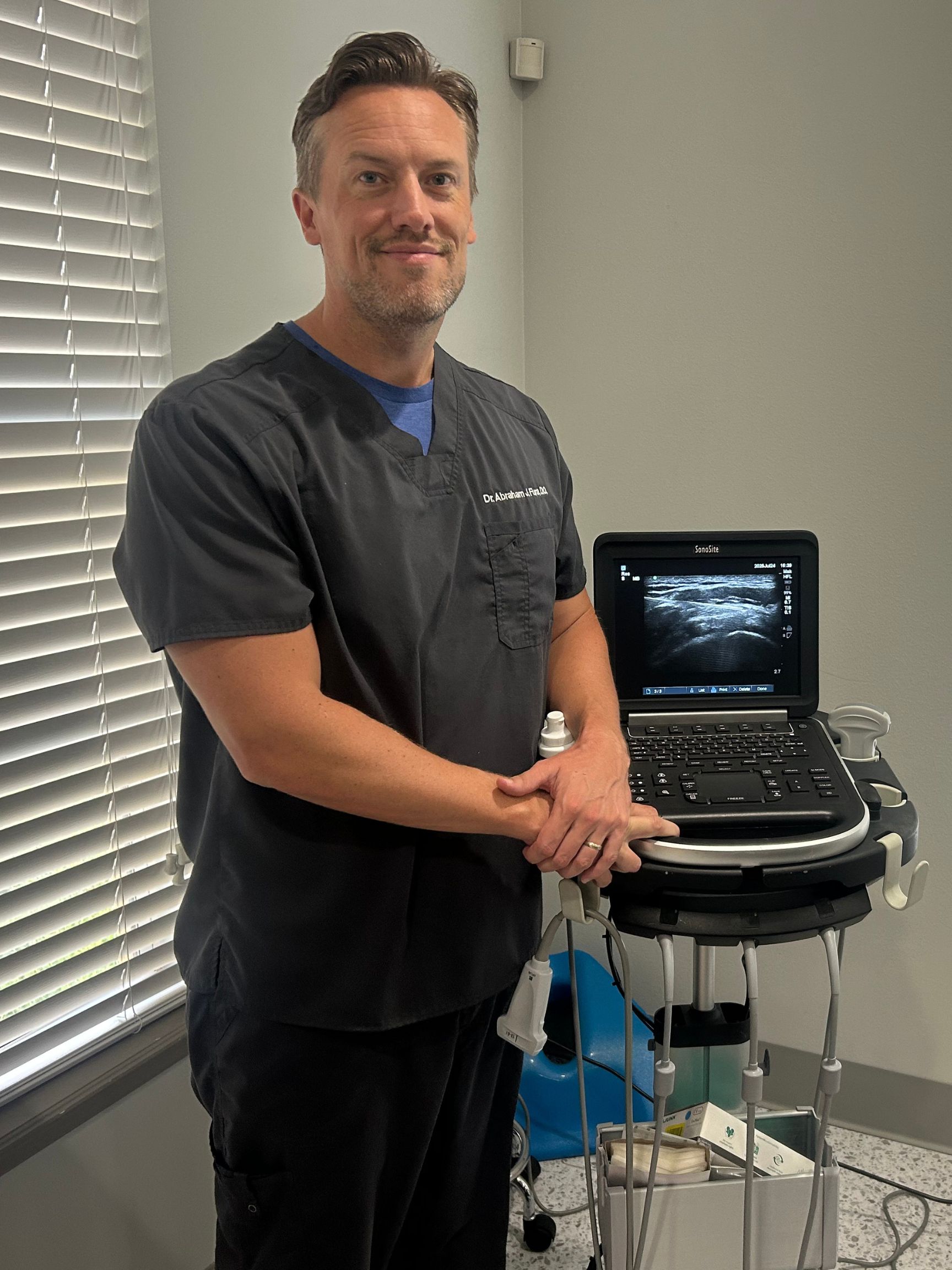
GETTING YOU BACK IN THE GAME
Whether you're a weekend warrior, a student athlete, or a seasoned pro, sports injuries are a frustrating reality of an active life. From sudden, acute injuries like sprains and tears to chronic, nagging pain from overuse, the goal is always the same: to get back to your sport safely and quickly. We specialize in the advanced diagnosis and non-surgical treatment of sports injuries, utilizing modern therapies that go beyond just masking pain to promote true healing, accelerate recovery, and help prevent future injuries.

INJURY TYPES
The demands of athletic activity can lead to a wide range of injuries, which generally fall into two categories: acute (sudden) and chronic (overuse).
The most common sports injuries. A strain is a tear in a muscle or tendon, while a sprain is a tear in a ligament that connects bones at a joint.
Chronic inflammation of a tendon from repetitive motion, common in conditions like Tennis Elbow, rotator cuff issues, and Achilles tendonitis.
These include damage to the cartilage within a joint (like a meniscus tear in the knee), inflammation of the bursa sacs (bursitis), and dislocations.
High-impact sports can cause acute disc herniations, while repetitive twisting can accelerate spinal degeneration. Nerve "stingers" are also common.

WHEN TO SEEK HELP
While minor soreness is normal, certain symptoms indicate a more significant injury that requires a professional diagnosis to ensure proper healing.
The pain from your injury does not get better after several days of rest, ice, and elevation.
There is considerable swelling, warmth, redness, or bruising around the injured joint or muscle.
A feeling that the joint is unstable, loose, or might buckle, especially in the knee or ankle, which suggests a ligament injury.
You experience any radiating pain, numbness, tingling, or a "stinger" sensation that travels down a limb.
You are unable to fully bend or straighten an injured joint due to pain, swelling, or a mechanical block.
You heard or felt a distinct "pop" at the moment of injury, which often indicates a complete ligament or tendon tear.
Pushing through the pain of a sports injury can lead to a more serious or chronic condition. A precise diagnosis and a modern, targeted treatment plan can accelerate your recovery and help prevent re-injury. Contact us to get to the root of your pain and create a plan to get you back to the activities you love.